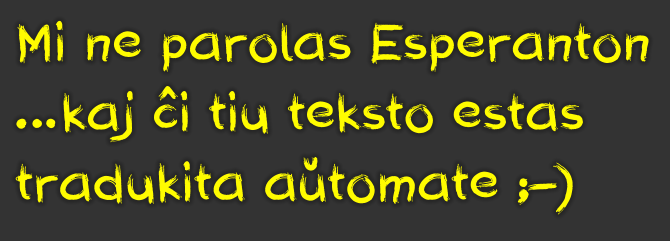Page 1 of 1
"Stiff Brush JK" display font
Posted: Mon Sep 02, 2019 7:20 pm
by janndk
A display font for posters, comics, greeting cards etc. Latin basic and extended characters. Created using Scanahand and FontCreator (and Affinity Designer)
https://www.1001fonts.com/stiff-brush-jk-font.html

Re: "Stiff Brush JK" display font
Posted: Tue Sep 03, 2019 9:21 am
by William
Very nice.
The font includes support for the Esperanto language. Excellent.

- Is_it_snowing.png (13.96 KiB) Viewed 13139 times
William
Re: "Stiff Brush JK" display font
Posted: Tue Sep 03, 2019 7:43 pm
by janndk
William wrote: ↑Tue Sep 03, 2019 9:21 am
Very nice.
The font includes support for the Esperanto language. Excellent.
William
Esperanto is included in the Scanahand template "Basic and Extended Characters".
(...But not in FontCreator's standard character set, as I recall? To my previous font
https://www.1001fonts.com/jann-script-font.html which was made [only] in FontCreator, I added Esperanto alphabet in purposely. No, I don't speak Esparanto, but I like the idea of a common world language. However, as the theme for that font was about Nordic main and minority languages with a recognized status, I didn't mention Esperanto in the description.)
Re: "Stiff Brush JK" display font
Posted: Tue Sep 03, 2019 7:53 pm
by janndk

- esperanto.png (66.23 KiB) Viewed 13120 times
Re: "Stiff Brush JK" display font
Posted: Wed Sep 04, 2019 7:43 am
by William
> No, I don't speak Esparanto, but I like the idea of a common world language.
Actually Esperanto is intended as a second, auxiliary, language for everyone, not to replace existing languages.
Your specimen text shows some features of the language.
The -as ending of parolas means that it is the present tense of a verb.
Compare
Mi ne parolas
with the French
Je ne parle pas
The -on ending of Esperanton means that it is a single noun in the direct object case.
kaj means and, pronounced like the first part of the English word kayak.
The -o ending of teksto means that it is a singluar noun. As it is not preceding by a preposition then it is the subject of the phrase.
The -ita ending of tradukita means that it is a passive past participle.
The -e ending of aŭtomate means that it is an adverb.
William

